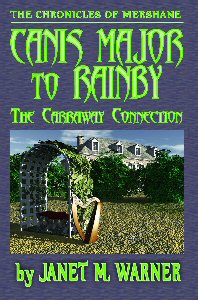
As he ate Paul studied the other occupants of the place. Tall, lean, hungry-looking Spacers, men and women who congregated at the far end of the bar, eating where they stood and more subdued than he had expected Void Riders of legend to be. He was more surprised to find the ostentatiously-costumed Hawk in their midst, as easy with them as one of their own guild; easier than she was with the Blaine that thronged the other end of the bar, loud and rough and more drunk than anyone on their wage rate had any right to be. The man tending the bar had refused to serve the Blaine till each man had handed over a credit chip. Paul had immediately assumed that these men owed the Taverna from some other binge, especially since the drinks were being paid for cash-down, but when the first of the Blaine finally decided he had had enough, the Taverna keeper returned the credit chip to him, carefully tucking it away inside the man’s jacket for safety. Gradually, as he watched, Paul worked it out. A man with family responsibilities, when drunk, was quite capable of drowning his and his companions’ sorrows in funds earmarked for the maintenance of his family. Most taverns would just accept the credit and throw the man out when he was too drunk to protest, or not conscious enough to care, but Taverna Vardis was an honest establishment. It saw its customers home safe in a ground car if necessary, and sometimes called in a wife or sister to fetch home the errant male, letting her in and out again discreetly by the back door so as not to offend Blaine morals or dignity; and above all, it saw that its patrons did not drink themselves into debt or destitution at its door. Taverna Vardis was more than honest: it was a shrine to one man’s belief in his fellow man. It was little wonder Blaine and Spacers and even Hawks made their way here and maintained the uneasy peace.
Slowly Paul became aware that the food actually tasted good. There were grown vegetables, not reconstituted pap, and the meat, whatever species it was, was fresh and untainted. He broke the hot loaf of bread at his elbow and dipped a chunk into the spicy gravy of the stew, and began to feel himself more human again, and less the outcast of the world. He wondered if good food and fair hospitality did the same for gold-braceletted Guild pilots and tattooed Spacers and feather-decked Hawk-kin. The native sanctuary of the water hole, where a mutual need created a temporary truce. He had almost convinced himself of this when he noticed a minor confrontation. Loonites, it appeared, were excluded from the haven. A heavily-muscled Blaine in work clothes, still grimy from end of shift, had cornered one of the deep Fringe loons and was pressing him hard on some matter. Paul could not distinguish the words, but the silent drama of gesticulation, cowering, push and shove told him most of what was happening.
The Blaine was a man of forty, and obviously in his prime and in well-paid, if hard physical work. His hair, grey-streaked, was cut short, but not cropped, and he wore a gold medallion of a Chapter leader; in most cases a respectable man. He was quite sober, but the belligerency oozed out of him and had created an aura of menace around him which kept others, even Blaine, away from him. The loon had made the mistake of attracting his attention and crossing his path. It was not something the loon could have avoided, coming into the main room itself from a side room at the edge of the bar area, which meant he had to pass the Blaine in order to leave. The older man had taken exception to the loon’s shadow passing over him, and had gone for the youth with all the pent-up fury of a frustrated thug.
Paul winced as the Blaine caught hold of a fistful of cloak fabric and hauled the loon closer so he could backhand him sharply as a reprimand for his negligence. The loon, belled, beaded and braceletted, had made no resistance at all to the assault. Loons were notoriously passive; their creed one of tolerance and love, they suffered an endless persecution of misunderstanding, hatred and fear which frequently resulted in violence done to them. The Blaine as a culture believed loons to be work-shy sluts and drug addicts, and therefore easy game and justifiable fodder for their own frustrations. Paul waited to see how this new belligerence would show itself and if the proprietor would stop things before any real violence was initiated.